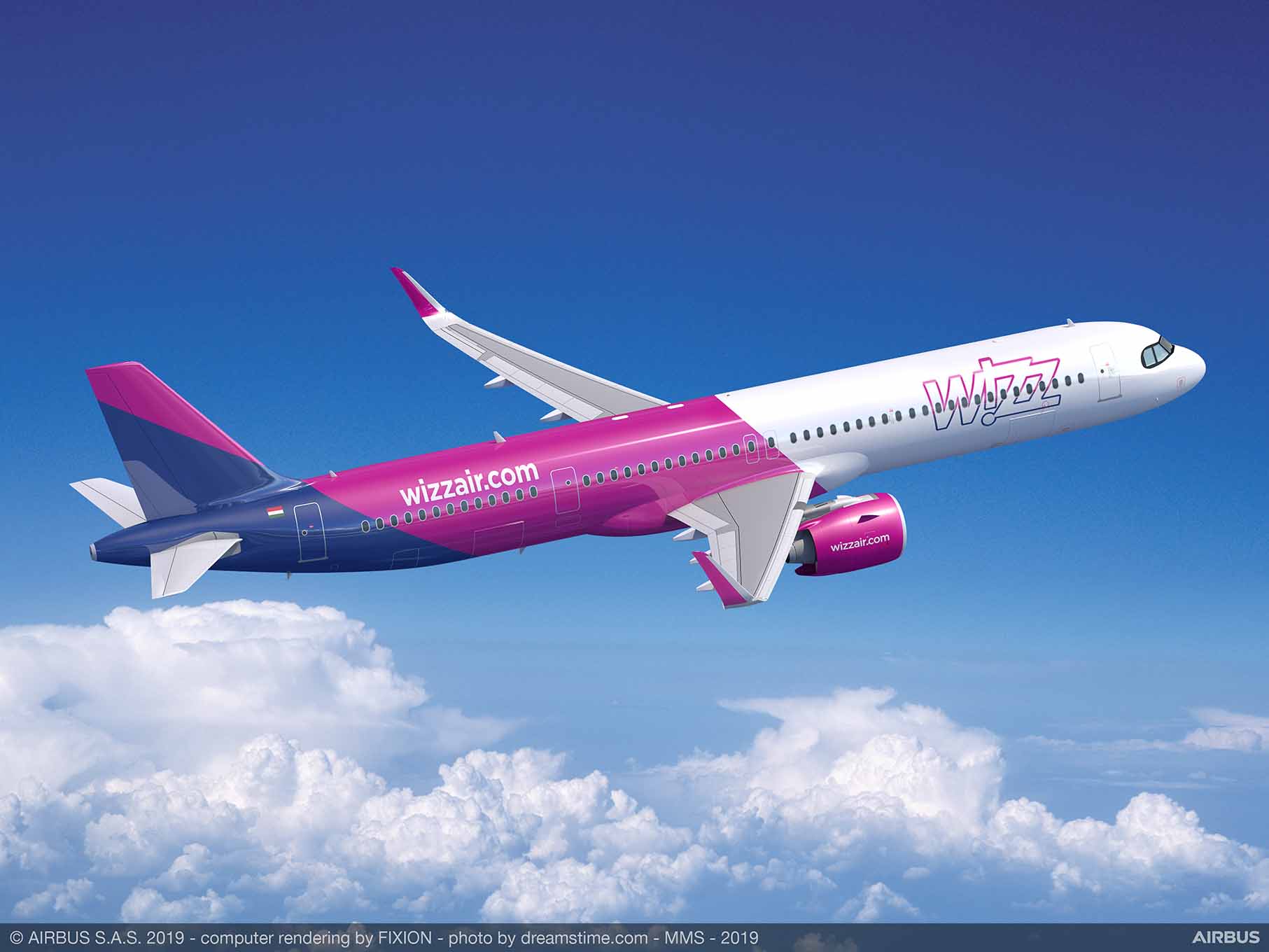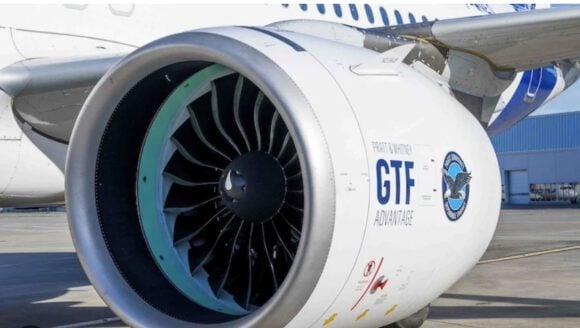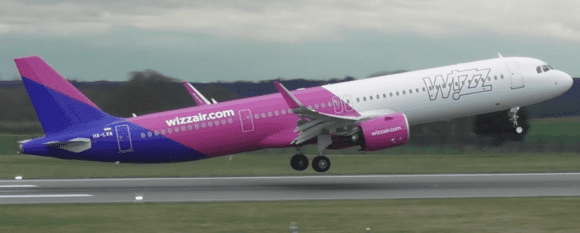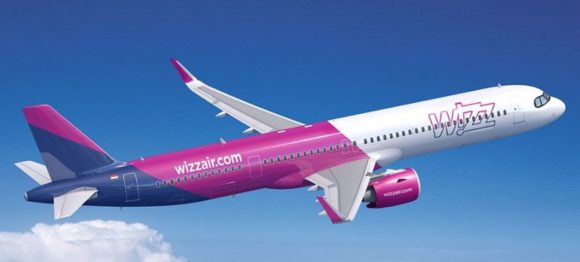
A321XLR Wizzair
Yes, the airline industry is in the midst of the worst crisis it has ever seen. And yes, this has had an impact on its operations, but Central and Eastern European ultra-low-cost airline Wizz Air is optimistic it will come out of the Covid-crisis stronger and quicker than most of its competitors.
Wizz announced it FY20-results on June 3, recording an underlying profit after tax of EUR 344.8 million compared to 265.4 million in FY19. The operating profit was EUR 338.3 million versus 357.9 million. Revenues grew to EUR 2.761 billion from 2.319 billion, with ancillary revenues up 31.5 percent to EUR 1.252 billion. Unit revenues were up 2.6 percent to EUR 3.95. The airline flew 40 million passengers, up from 34.6 million the previous year, with a 94 percent load factor.
Adverse fuel hedging did cost the airline EUR 31.8 million.
Strong market share in Central and Eastern Europe
Most of Fiscal Year 20 has been a rollercoaster of growing market share, which according to Wizz figures stands at an average of 39.6 percent within the CEE region compared to Ryanair’s 31.9. In nine out of thirteen countries, Wizz is market leader and has a share of well over 50 percent. For instance, Rumania shows a 61.3 percent share, Macedonia an even staggering 86.8 percent, while in the competitive Polish market that includes Ryanair-subsidiary Buzz Air it is in second place with 49.4 percent. It opened 98 new routes in FY20.
Most of these markets went into a lockdown and reduced capacity to just three percent in April and seven in May, but Wizz took the strategic decision not to close any of its 25 bases. It operated some 130 rescue and cargo-only services for the first time that included flights to China to pick up medical goods. Since June, Wizz has gradually resumed flights to ten percent capacity and is planning for more.
CEO Jozsef Varadi is optimistic his airline will recover from the Covid-crisis within a year. “This is subject to restrictions, but if they are lifted we should be back in the game full steam again within a year from now. The first airlines to recover are the ones like us with a simple short-haul, point-to-point product”, Varadi said during recent webcasts with Aviation Week and Dubai’s Arabian Travel Market.
“Don’t make a mess of Covid-restrictions”
Varadi is worried however by the way countries manage their restrictions: “It is difficult to cut through the jungle. We operate to 45 countries with 45 different rules. It is bad enough to have to deal with a crisis but don’t make a mess out of its.” He is critical on airlines who have blocked middle seats to prevent the spreading of corona on board aircraft. “Blocking is not the solution, it will not achieve much. It is not sustainable over the long run. This is corona hysteria. Masks will be useful, but better is hygiene measures.”
Wizz is seeing strong demand for flying, especially with young people who like flying on the low-cost airline. It announced the opening of additional bases from July 1, when it will station five aircraft at Milan Malpensa to operate twenty routes, three in Tirana (Albania) for fifteen routes, two in Larnaca (Cyprus) for eleven routes, and one in Lviv (Ukraine) for five new routes.
New chances in Abu Dhabi
A major step was scheduled for June 3, as Wizz had planned to start operating its new Wizz Air Abu Dhabi subsidiary in partnership with Abu Dhabi Development Holding Company. Covid has delayed this, but the first flights are still scheduled for June (it actually arrived on July 1). At first, the Abu Dhabi-subsidiary will offer flights to CEE-countries as well as Western Europe, followed later by the Middle East, Africa, and the Indian subcontinent. Varadi said on June 3 that he expects to make further announcements in the coming weeks and promises plans will be bigger than originally announced last December.
While the Middle East-region has plenty of low-cost airlines of its own, Varadi says Wizz will be doing something different. “The low-cost model is fairly established in the ME-region but we bring a significantly different model. We have no tie-up with other airlines, but that is not a disadvantage.” With five billion people living within the range of Wizz Air’s fleet, Varadi sees huge potential for the future: “It took us fifteen years to bring our fleet in Europe to 100 aircraft. We should be able to bring the fleet in Abu Dhabi to 100 aircraft within the next fifteen years too.”
Wizz Air has reduced costs, including the reduction of 19 percent of its staff, but these could be rehired again when business resumes to normal levels. All non-essential investments have been deferred. The airline bolstered its net cash position to EUR 1.496 billion of which 1.310 billion in free cash. It also secured GBP 300 million in aid under the UK’s Covid Corporate Financing Facility. According to Jozsef Varadi, the airline is in a strong position to wheather the crisis if continues much longer: “We can survive without flying a single passenger for 24 months and still will be in business. We are cash-positive.”
Without any fuzz, Wizz Air shareholder Indigo Partners in February placed GBP 500 million in ordinary shares with institutional investors managed by Indigo. Until then, Bill Franke’s Indigo Partners had 20.6 percent of all ordinary shares within the airline.
Confirming the confidence of Wizz in the future, the airline will stick to its aggressive fleet expansion plans for the next years. It currently operated a fleet of 121 Airbus A320-family aircraft, including eight A321neo’s. It expects to grow the fleet to 2021 by March 2021 as it takes delivery of seven more in FY21 and 25 in FY22, plus the first seven A320neo’s in FY21 and six in FY22.
Wizz is committed to the 268 neo’s it has on order for the coming years, which include twenty A321XLRs that will arrive from 2023. “We will take deliveries as contracted, we have not deferred any. We need to keep our long-term strategical objectives in mind and new and fuel-efficient aircraft play a huge role in that”, Varadi says. It will return 32 ceo’s back to lessors to adjust capacity in the coming years but still will double in size by FY25.
Views: 5





